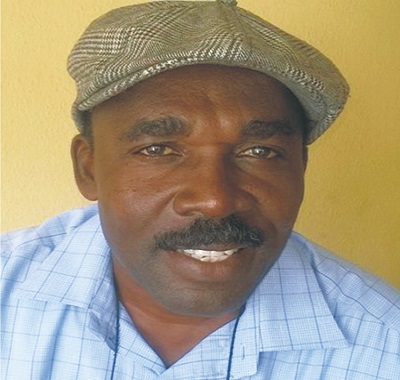How FG Should Support Indigenous Airline Operators- Iwarah

By Kenneth Jukpor
Mr. Chris Iwarah is the General Manger, Corporate Communications at Air Peace. In this exclusive interview with MMS Plus, he appraises the potentials and challenges in the nation’s aviation sector, highlighting the modest achievements of Air Peace and his reservations on the establishment of the Nigeria Air. Excerpts:
It’s almost four years since Air Peace came on the scene in the nation’s aviation sector. How has the aviation business been?
Aviation business is challenging everywhere in the world and Nigeria isn’t an exception although the country has its peculiarities in terms of the environment which operators have to thrive in, especially as some facilities aren’t upto par with was is obtainable in other climes. However, the Federal Government and the regulatory agencies deserve some commendation for their efforts to improve facilities to global best standards. Nevertheless, there is the need to create connectivity and have seamless connections around the world. Before Air Peace came into the industry, the aviation sector was at a point that almost a black-out. People were unwilling to invest in the sector. Flights were cancelled randomly and arbitrarily.
Air Peace has changed the game to an extent. We brought on-time performance that is unrivalled, we brought in capacity that is unrivaled and we also have facilities. We started out with seven aircrafts, however, in less than four years we have about twenty-four aircrafts. We have been able to triple the size of our fleet in such a short time. We are expanding in terms of our reach, connectivity, aircraft and human capacity; despite the multiple challenges we have in the aviation industry.
What does the proposed introduction of Nigeria Air mean for indigenous operators like Air Peace?
As much as Air Peace would love to take all the jobs in aviation; we can’t do all the jobs and I believe that the more airlines we have in the country would make the business merrier. Nigeria Air brings about competition which is good for the industry. Competition makes all operators sit up. Air Peace isn’t threatened by the emergence of Nigeria Air, in fact we are deeply in support of the initiative because we are strong, and we have the capacity and business model that is outstanding and unbeatable.
However, a level playing field must be created for every operator in the aviation sector when Nigeria Air comes onboard. If Nigeria Air is 95% private sector driven, it would be inappropriate to take the monies Air Peace pays as tax to support Nigeria Air against Air Peace.
Air Peace pays heavy taxes so it would be unfair for anybody to utilize public funds to support some category of investors at the expense of other investors. It would be indiscriminate and against the laws of the country. Everybody who is a Nigeria must be treated on the same platform. You can’t create a group of special investors. If anything, it is those who have invested in the sector without any aid or grant and at a certain time when the sector was showing no hope or prospects for profitability. Investors like Air Peace who dared to take the risk to invest in aviation deserve more support from the government.
In fact, at Air Peace we have been advocating that government comes in to support the industry but the support must be across board. For instance, if the government is giving any player in the industry N50million, the government should give Air Peace N50million and any other airline the same N50million. If the government does this, there would be no crisis in the sector. Nigeria Air brings about competition which is good for the industry. Air Peace isn’t threatened by the emergence of Nigeria Air, in fact we are deeply in support of the initiative because we are strong, and we have the capacity and business model that is outstanding and unbeatable. People are already amazed at our rapid success in just four years. Give us another six years and you would be amazed at our development.
Airlines in other countries of the world get huge subventions from the government because the aviation industry is an enabler of the economy. Foreign investors want to come into a country that is well connected by air. There is no sound economy anywhere in the world without a solid aviation industry.
What’s your appraisal of the state of infrastructure at the nation’s airports?
It is common knowledge that the facilities at the nation’s airports aren’t up to the global best standard. While it is unnecessary to begin to throw blames at any agency or the government; it is important that we all make efforts to improve the facilities at the airports and turn the story around. The good thing is that the government realizes the need to upgrade these facilities and they have been taking the right actions so we gave to support them. Recall that when the government wanted to do the runway repairs for the Abuja airport, Air Peace supported by directing all flights to the Kaduna airport. Several airlines left the system but we stayed despite the fiscal and operational challenges.
The problem of flight cancellation has become a bane in the aviation industry but the Nigerian Airspace Management Agency (NAMA) recently introduced some technologies. What should we expect as we edge closer to the harmattan season?
I may not be able to comment on the technology or innovation they have introduced because I’m neither an engineer nor a pilot. However, I have observed that most of the issues that lead to cancellation of flight are beyond infrastructure challenges; they are natural occurrences. There is no investment in infrastructure or facilities that would significantly change those circumstances. The factors that have to do with infrastructure like runway facilities could be upgraded. Nevertheless, there is no way we can eradicate delays in safety as a result of the bad weather.
At Air Peace, safety is our watch-word. So, if the weather is not perfect, if visibility is impaired, we would not risk the lives of our crew and passengers. We value their lives so we wouldn’t fly at such times. Without the harmattan, there certain times you can’t fly to Akure or Benin too early because visibility is poor around that time. We tell our pilots that if flying into an airport isn’t safe; it is better to delay. It is better to delay than to get there with dead people.
People need to be patient when we say we have to delay flights because it is for the good of everybody. As we get into the last quarter of the year, these occasions of delay may become frequent, but we would do everything possible to curb delays that we prevent.
There have been moves to concession certain airports in the country. However, the maritime sector has problems as no regulation was made to regulate the fiscal decisions of the concessionaires. Is the aviation sector ripe for this development especially as there is no economic regulator of the airports?
Concession is a beautiful concept all over the world. Government has no business doing business. The best airport in the country today is the MM2. The reason is not farfetched; it is because certain parts of the airport have been concessioned. The court case isn’t peculiar to the maritime sector because the aviation sector also has the same problem because the operators of MM2 and the government.
Concession itself isn’t the problem. It is the formulation of the policies and the implementation of those policies that may spring problems. There is need to tidy up the policy around the concession. The agreement should be respected by subsequent governments after changes in administration and the parties in the agreement should religiously fulfill their obligations.
If one party agrees to provide electricity for instance and it doesn’t keep it; the other party may be forced to take on this obligation and it would have to pass this extra cost on someone. For Public-Private Partnerships (PPPs) to succeed in Nigeria there must be transparency, honesty and willingness to cooperate on both sides.
There are sufficient agencies at the airport already. There is no need to create a new agency; however, one of the agencies at the airports like the Federal Airport Authority Nigeria (FAAN) could take up the new responsibility as economic regulator. We already have too many agencies at the airports; one of the agencies can do an oversight function. The basis of that agreement must be established and transparent.






